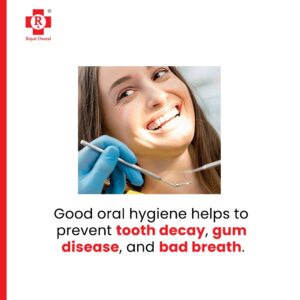
Pericoronitis: Extraction v/s Operculectomy | Royal Dental
Extraction v/s Operculectomy | Pericoronitis is the inflammation of the gingival tissue surrounding the crown of the partially erupted wisdom tooth or teeth in the jaw. It is more common in lower molars than the upper molars. A gingival tissue flap is seen covering the crown. Decision to whether extract the teeth or tooth or incise the flap lies in the hands of the dentist which depends on various factors.
Tooth extraction is performed by a dentist or oral surgeon and is a relatively quick outpatient procedure with either local, general, intravenous anesthesia. Operculectomy is a minor surgical procedure where the affected soft tissue/ the flap of gum over the wisdom tooth, is cut away, preventing further build-up of debris and plaque, and subsequent inflammation.
Main complications in Pericoronitis:
Pain and swelling
Difficulty in chewing food from that side
Reduced mouth opening
Cheek bite
Difficulty in swallowing
Bleeding from the site.
Three options to manage Pericoronitis (Extraction v/s Operculectomy):
Relieving the pain:
If the tooth will erupt fully on its own and when there is an opposing tooth present, the dentist may take a call on not extracting the tooth or incising the flap. The dentist may decide to manage the case by reliving the pain.
Treatment: scaling plus curettage , salt water warm gargles, NDAIDS , antibiotics.
Incising the flap:
If the patient is in severe pain even after deep scaling curettage and medications and if there is an antagonist tooth present, the flap is incised to get the rid of the inflamed tissue and give a guide path for eruption. Antibiotics are prescribed after the surgery. Patient is educated on keeping the surgical site clean by using antiseptic mouthwash, warm salt water gargles.
Extraction:
If the problem persists and the flap grows back again a second surgery is needed. Extracting the tooth usually solves the problem . Usually patient recovers within 7-14 days from pericoronitis. Regular dental visits helps to reduce the chances of pericoronitis .also maintaining oral hygiene and regular scaling at dental clinic helps to prevent inflammation.
Leave a reply


Leave a reply